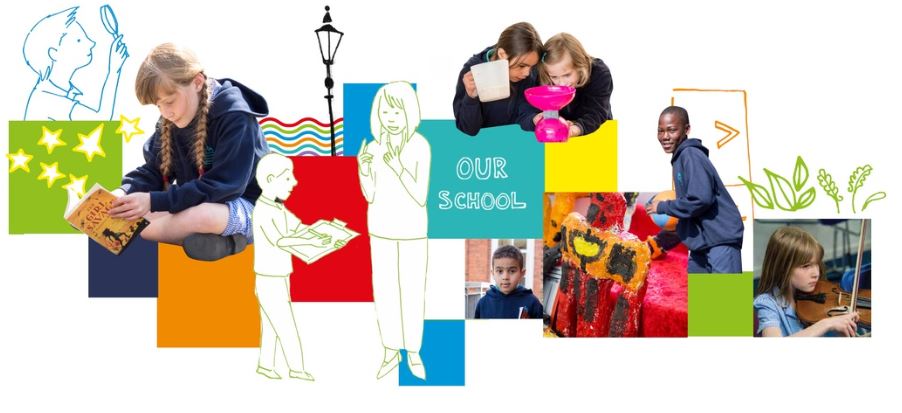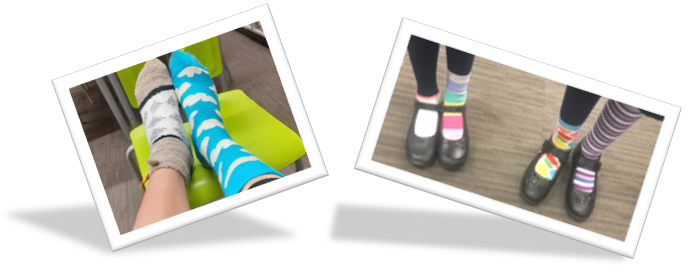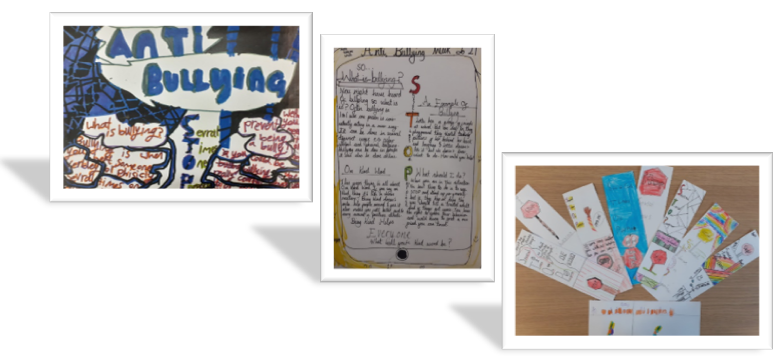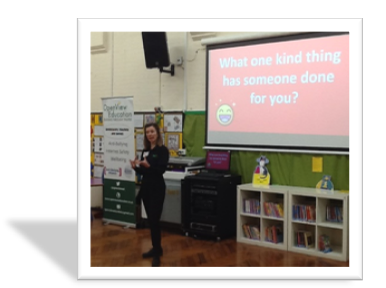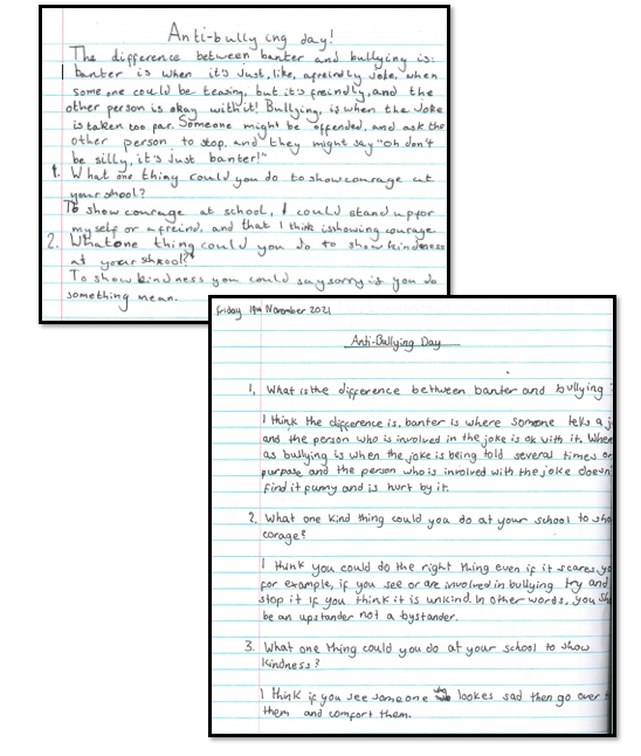About | Admissions | Our Curriculum | Safeguarding | Wellbeing | Values & Behaviour | Anti-Bullying | Online Safety | Our Playground
SEND | Our Green School | Staff | Breakfast & After School Care | Pupil Voice |Ofsted| Challenge Partners
Attainment & Progress | Transition | Vacancies
Community Links | Archive Project
SEND | Our Green School | Staff | Breakfast & After School Care | Pupil Voice |Ofsted| Challenge Partners
Attainment & Progress | Transition | Vacancies
Community Links | Archive Project
ANTI-BULLYING
All staff at Dulwich Hamlet take bullying incredibly seriously. It is part our whole school vision that ‘everyone matters’ and we believe passionately that children have a right to be free from bullying.
The children should be:
We are a telling school: if any member of the school community is subject to or witness to bullying they should tell a trusted adult. Failure to do so makes you a bystander and makes you guilty of promoting bullying in school.
What is bullying?
Bullying is when someone hurts you several times on purpose (STOP). Bullying can be emotional or physical. When someone hits you or pushes you, that is called physical bullying behaviour. Emotional bullying behaviour is when someone calls you names or picks on you. Some examples of bullying behaviours are:
There are many more bullying behaviours too.
Prejudice-related incidents
We are a tolerant school. This means we do not judge people who are different to us in terms of gender, race, religion, age, disability or sexuality. If a student bullies another on any of these differences then it is taken very seriously and will be recorded. A prejudice related incident is different from bullying as it may not be intentional or repeated. It is still taken very seriously and recorded.
Sexual Harassment
Sexual harassment means unwanted sexual conduct and it can happen online and offline. It can include: sexual comments, sexual taunting, physical behaviour, displaying photos, pictures or drawings of a sexual nature. We challenge the behaviour rather than the person, as soon as it occurs, explaining clearly what the problem is before offering support and empathy to the victim. These incidents are recorded.
Online Bullying
Pupils should uphold the school values of respect, resilience and integrity at all time – even when they are not at school. This includes when they are online.
If a pupil is being bullied online, or can see that somebody else is being bullied online, they should tell their parents or a trusted adult or teacher. A parent should inform the school as the school will help sort the problem out.
The children should be:
- Safe and able to learn, play and enjoy the company of others
- Treated fairly, with respect and dignity
- Listened to and their emotional concerns taken seriously
- Aware of what bullying is (and is not)
- Able to report their concerns
- Protected from bullying by consistent adult responses
We are a telling school: if any member of the school community is subject to or witness to bullying they should tell a trusted adult. Failure to do so makes you a bystander and makes you guilty of promoting bullying in school.
What is bullying?
Bullying is when someone hurts you several times on purpose (STOP). Bullying can be emotional or physical. When someone hits you or pushes you, that is called physical bullying behaviour. Emotional bullying behaviour is when someone calls you names or picks on you. Some examples of bullying behaviours are:
- People leaving you out and not letting you play
- Spreading rumours that may be untruthful or hurtful
- Physical (hitting, kicking, pushing)
- Name calling of an insulting or personal nature
- Online bullying or abusive or threatening messages, emails or calls and any other online communication
- Stealing others’ property or demanding it
- Being rude to someone because of the amount of money they have, their sexual orientation, race, culture, religions disability or how smart they are
There are many more bullying behaviours too.
Prejudice-related incidents
We are a tolerant school. This means we do not judge people who are different to us in terms of gender, race, religion, age, disability or sexuality. If a student bullies another on any of these differences then it is taken very seriously and will be recorded. A prejudice related incident is different from bullying as it may not be intentional or repeated. It is still taken very seriously and recorded.
Sexual Harassment
Sexual harassment means unwanted sexual conduct and it can happen online and offline. It can include: sexual comments, sexual taunting, physical behaviour, displaying photos, pictures or drawings of a sexual nature. We challenge the behaviour rather than the person, as soon as it occurs, explaining clearly what the problem is before offering support and empathy to the victim. These incidents are recorded.
Online Bullying
Pupils should uphold the school values of respect, resilience and integrity at all time – even when they are not at school. This includes when they are online.
If a pupil is being bullied online, or can see that somebody else is being bullied online, they should tell their parents or a trusted adult or teacher. A parent should inform the school as the school will help sort the problem out.
|
How to Report Bullying
Children are encouraged to report bullying in one of the following ways: -An anonymous note in the Reporting boxes - Speaking to a child playground mentor or trained adult Mental Health First Aider (both wear pink bibs) - Speaking to a class teacher or any member of staff - Speaking to a trusted adult at home N.B. If a child discloses bullying at home please email your class teacher as a matter of urgency, copying in the behavioural lead, Mr Salomonson ([email protected]). If you are unhappy with the response please contact the Headteacher. |
|
Anti-Bullying Week 2021
This week, along with schools up and down the country, Dulwich Hamlet celebrated Anti-Bullying Week 2021. This year’s theme was One Kind Word – reminding us to choose kindness and consider the impact of our actions on others.
We kicked off the festivities (and our shoes) on Monday by marking Odd Socks Day – an annual opportunity to wear mis-matched socks in celebration of everything that makes us unique and different. In our introductory whole school assembly, we focussed on what bullying is and how we can challenge it, acting as upstanders and reporting bullying to trusted adults in school or at home.
This week, along with schools up and down the country, Dulwich Hamlet celebrated Anti-Bullying Week 2021. This year’s theme was One Kind Word – reminding us to choose kindness and consider the impact of our actions on others.
We kicked off the festivities (and our shoes) on Monday by marking Odd Socks Day – an annual opportunity to wear mis-matched socks in celebration of everything that makes us unique and different. In our introductory whole school assembly, we focussed on what bullying is and how we can challenge it, acting as upstanders and reporting bullying to trusted adults in school or at home.
|
Throughout the week, we re-visited these important anti-bullying messages in class. Year 3 and 4 learned the STOP sign, which stands for Several Times On Purpose and reminds us that we have the power to say STOP if we see or experience bullying. Year 5 and 6 asked themselves ‘What would you do?’ when looking at a range of scenarios involving online bullying. Take a look at some of our fantastic work below:
|
|
On Friday, all year groups enjoyed anti-bullying workshops from Open View Education. In their online session, Year 3 and 4 learned how to identify bullying, how to get help from adults, and how we can all come together to put a stop to bullying behaviour. In upper school, Year 6 learned the all-important difference between banter and bullying while year 5 enjoyed an in-person visit from an Open View Education facilitator. Finally, we finished off the week by joining in with Andy and the Odd Socks to sing this year’s anti-bullying anthem: One Kind Word. |

